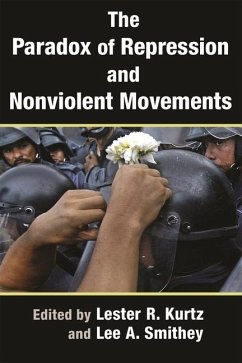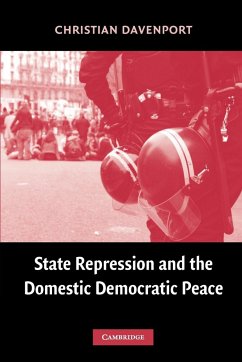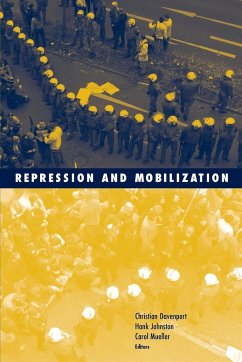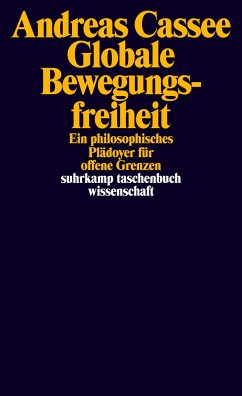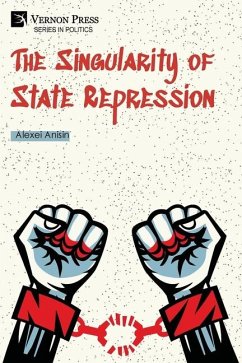
The Singularity of State Repression

PAYBACK Punkte
26 °P sammeln!
What sets a single bout of state repression apart from a longer trajectory of political violence? Why does state repression of protesters sometimes result in discrete events of violence while, in other cases, it spurs larger cascades of political violence such as politicide, genocide, or civil war? This book introduces a new framework for state repression and its relationship to different forms of civil resistance. It argues that state repression in the modern era of history is an empirical phenomenon that has been marked by singularity. Through taking the law of coercive responsiveness as a s...
What sets a single bout of state repression apart from a longer trajectory of political violence? Why does state repression of protesters sometimes result in discrete events of violence while, in other cases, it spurs larger cascades of political violence such as politicide, genocide, or civil war? This book introduces a new framework for state repression and its relationship to different forms of civil resistance. It argues that state repression in the modern era of history is an empirical phenomenon that has been marked by singularity. Through taking the law of coercive responsiveness as a starting point, this book reveals that when political status quos are challenged by civilians, states do respond in law-like ways, but the impact that state repression has on social change is more heterogeneous than previously considered. State repression has brought about indeterminate effects and outcomes across space and time. Through analyzing event-based data featuring 24 variables on a cross-national sample of 171 different protest massacres that arose from 1819-2022, this book provides among the more wide-reaching comparative inquiries into repression and dissent to date. It draws on comparative sequential analysis to identify three different processes in which the sample of cases is matched alongside causal mechanisms and sequence types. The mixed methodological approach drawn in this book features quantitative analysis, process tracing, and qualitative case studies. Readers are taken on a journey through tumultuous periods of political violence that range from 19th-century massacres in the U.S. to 1928 Colombia and 1970s Apartheid, 1990s China, the Arab Spring, and contemporary Syria and Myanmar, among a diverse range of other cases. Along with identifying new quantitative insights into civil resistance strategies and various geographic and temporal dynamics associated with repression, the analyses presented in this book offer timely insight into policies that can aid the prevention of human rights violations.






